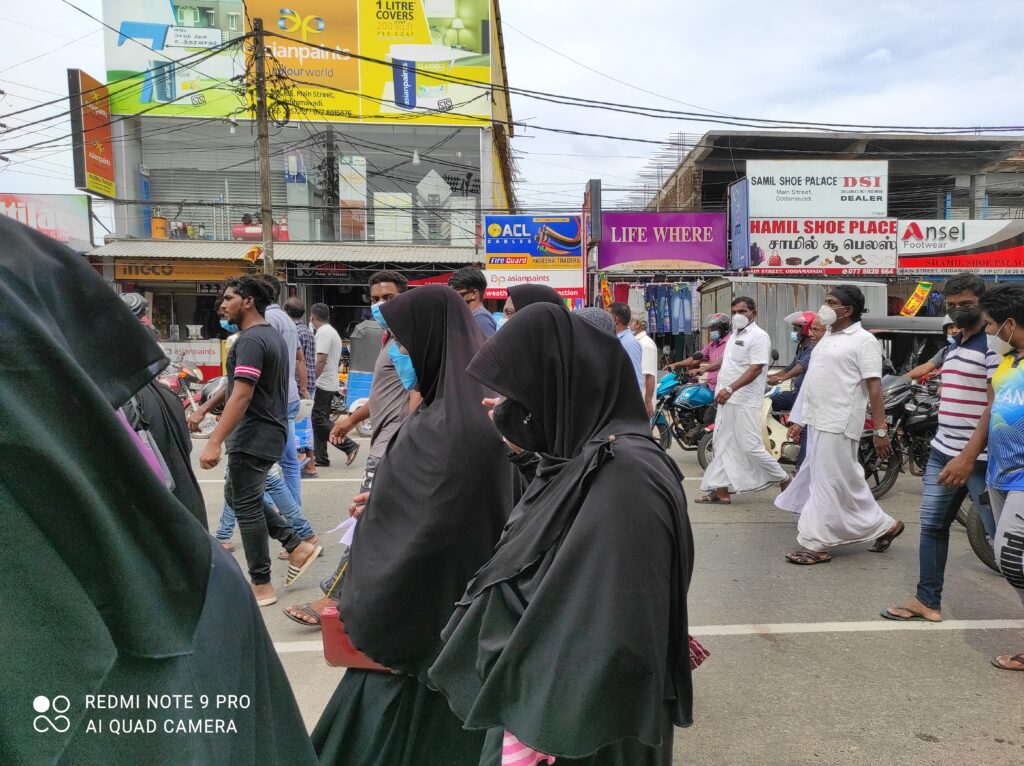People’s Protest March in Sri Lanka
Reconciliation, freedom and the rule of law in Sri Lanka seem to be at risk once again. This is the result of successive Sinhala Buddhist nationalist governments’ inability to chart a credible reconciliation process since the ethnic war ended in 2009, and their failure to reveal the truth of war crimes, forced disappearances, and genocide. Rather, they have instead motivated violent extremism in terms of Sinhala Buddhist nationalism, militarization, and majoritarianism.
Today, the freedom of religion and belief, freedom of expression (media), freedom of association, and the democratic space for civil and human rights activism are under threat and danger in Sri Lanka. Therefore, it was appropriate that the day of Sri Lanka’s Independence was chosen as the date for Tamils and Muslims to express their dissatisfaction with the current government and their lack of addressing minority issues.
The peaceful protest march was organized on February 3–7, 2021 by the North and East Civil Society Forums and in total approximately 300,000 participated. In defiance of numerous court orders, Hindus, Christians and Muslims began the joint march from Pottuvil in Amparai District (East) to Polikandy in Jaffna District (North); the two furthest points delineating the traditional Tamil-speaking homeland.
The aim was to raise awareness of the plight of Tamils and Muslims on the island and to call upon the UN and the international community to heed calls for justice and accountability of war crimes and a discontinuance of discrimination against religious and ethnic minorities. Sri Lanka’s security forces attempted to break up the rally at various points throughout the march by intimidating demonstrators as well as obtaining injunctions against the protest itself but at each stage along the way the protesters managed to defy such attempts.
Demands to the UN
The protesters put forward the following 10 key demands:
- To end forced land grabs and Sinhalization.
- To end the military occupation of Tamil-speaking homelands, and the appointment of military officers to leadership roles in state administration.
- To end the intimidation of journalists and civil society activists.
- To safeguard the rights of farmers.
- To protect the rights of war victims in remembering their deceased family members who died in the war.
- To repeal the Prevention of Terrorism Act (PTA).
- To end forced cremations and respect the rights of minorities at the time of last rites.
- To release Tamil and Muslim political prisoners.
- To provide answers to families regarding the status of their disappeared loved ones.
- To raise the wages of plantation workers.
Contribution of the Church of the American Mission (CACM)
CACM, as a participatory and prophetic church, builds solidarity with struggling communities and joined in this protest march. In particular, CACM Batticaloa and its partnership organization, ‘White Peacock’ (Forum for Freedom of Religions and Rights of Minorities), signed the Memorandum and played a key role in organizing in the Eastern Province.
Conclusion
In spite of many criticisms, the Tamil and Muslim communities participated in a protest march together after 40 years which was a great success in the history of this nation. It also served the purpose of breaking a mindset of helplessness to one of empowerment in challenging the Rajapakse’s oppressive government and military rule. The protest created a space for Tamils and Muslims to reflect on their shared political vision of the state as well as encouraging Tamil and Muslim democratic activists to build solidarity with struggling Sinhala Buddhist communities for a national level protest in the future.
Goals in Future from Protest March Learnings
- An Inclusive Political State.
- A Sustainable and Equitable Economy.
- A Free and Fair Society for All.
We stand for the rights of one another, not for one’s particular freedom but rather for a common freedom.
Rajan Rohaan
Church Commission for Justice and Peace
Church of the American Ceylon Mission
Batticaloa, Sri Lanka

